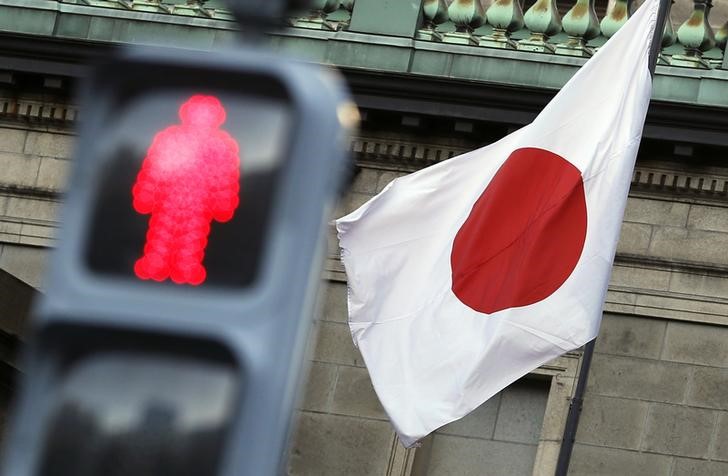By William Mallard
TOKYO (Reuters) - Some Japanese firms, facing the possibility of negative interest rates on their deposits, would consider stuffing their cash in a safe rather than pay to keep it in the bank, a Reuters poll found, in what would be an unintended and unwelcome side-effect to the country's new monetary policy.
While the bulk of companies in the Reuters Corporate Survey said they would keep their money in bank accounts if their lender followed the Bank of Japan in cutting rates below zero, 15 percent said they would withdraw funds.
"We would store cash in our company safe," wrote a manager at a services company.
Safes or safe-deposit boxes were the most popular alternative to bank accounts cited by respondents. A popular series of company safes from Secom Co Ltd (T:9735) can be crammed with some 150 million yen to 1.6 billion yen ($1.3 million-$14 million) in Japan's biggest-denomination bills.
The central bank shocked investors in January by cutting a benchmark interest rate to below zero, seeking to put an end to two decades of deflation and encourage loan and investment demand.
But the willingness of a noticeable chunk of corporate Japan to squirrel cash away rather than leave it on deposit highlights the difficulty Prime Minister Shinzo Abe is having in getting companies to do their part in supporting his policies, which have also included pleas to raise wages and invest more.
The survey, conducted March 3-17, also showed that 62 percent of firms disapproved of the central bank's new policy, believing it will hurt business and consumer sentiment.
Just over 500 large and mid-size companies were polled, with managers responding anonymously. Of those, 240 replied to a question on what they would do if their own deposit rates went negative.
Banks insist they won't pass on negative rates to their small-account holders, but some lenders have left open the possibility of raising fees on big deposits, meaning a net charge to customers. Big companies tend to park their cash in current accounts - akin to checking accounts in the West - which already yield zero interest.
To be sure, even those companies pondering withdrawals could decide the cost, risk and bother of holding cash outweighs the loss from negative rates. The companies in the survey did not indicate how much they might consider taking out of the bank.
The concerns at the companies mirror those of many of Japan's legions of savers, especially older people on fixed incomes.
When negative rates took effect in mid-February, queries about home safes surged, especially from customers aged 50 and over, said Noriyuki Inde, a supply specialist at electronics retailer Yodobashi Camera.
Sales of safes are now running some 40 to 50 percent above this time last year, he said.
